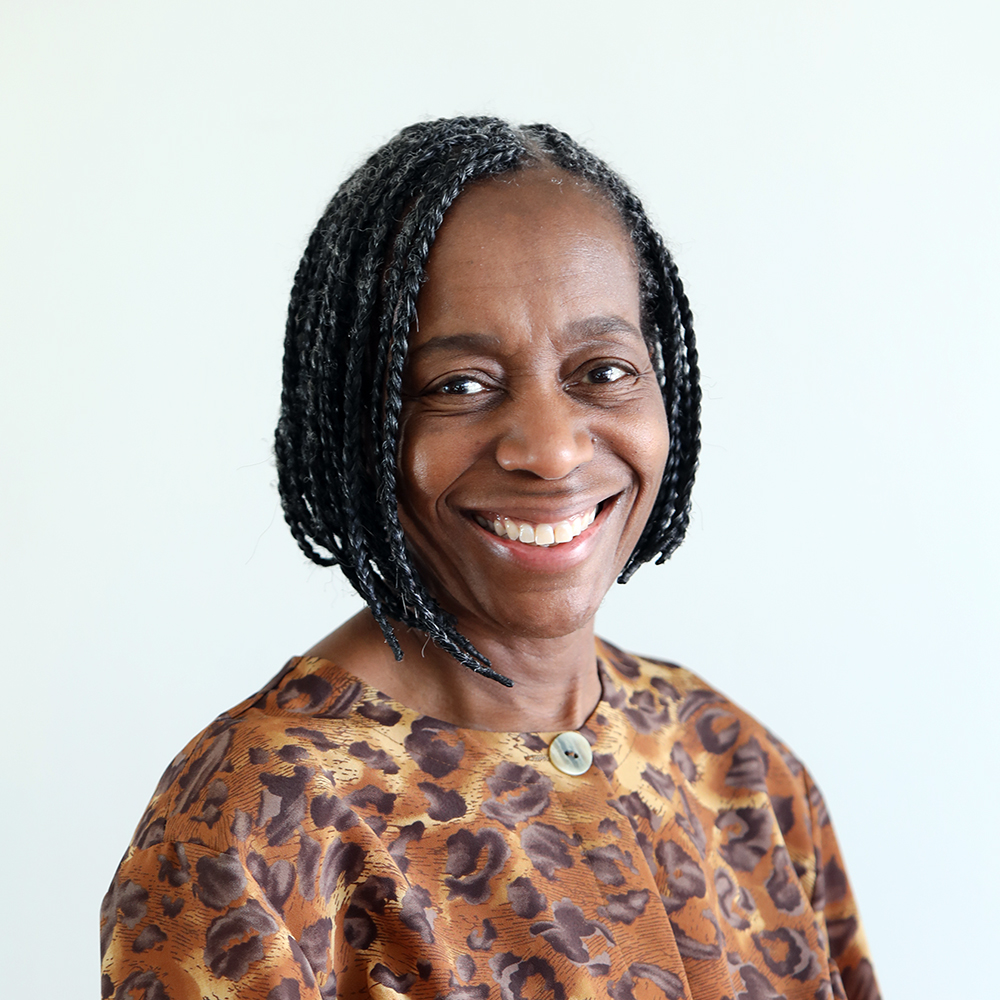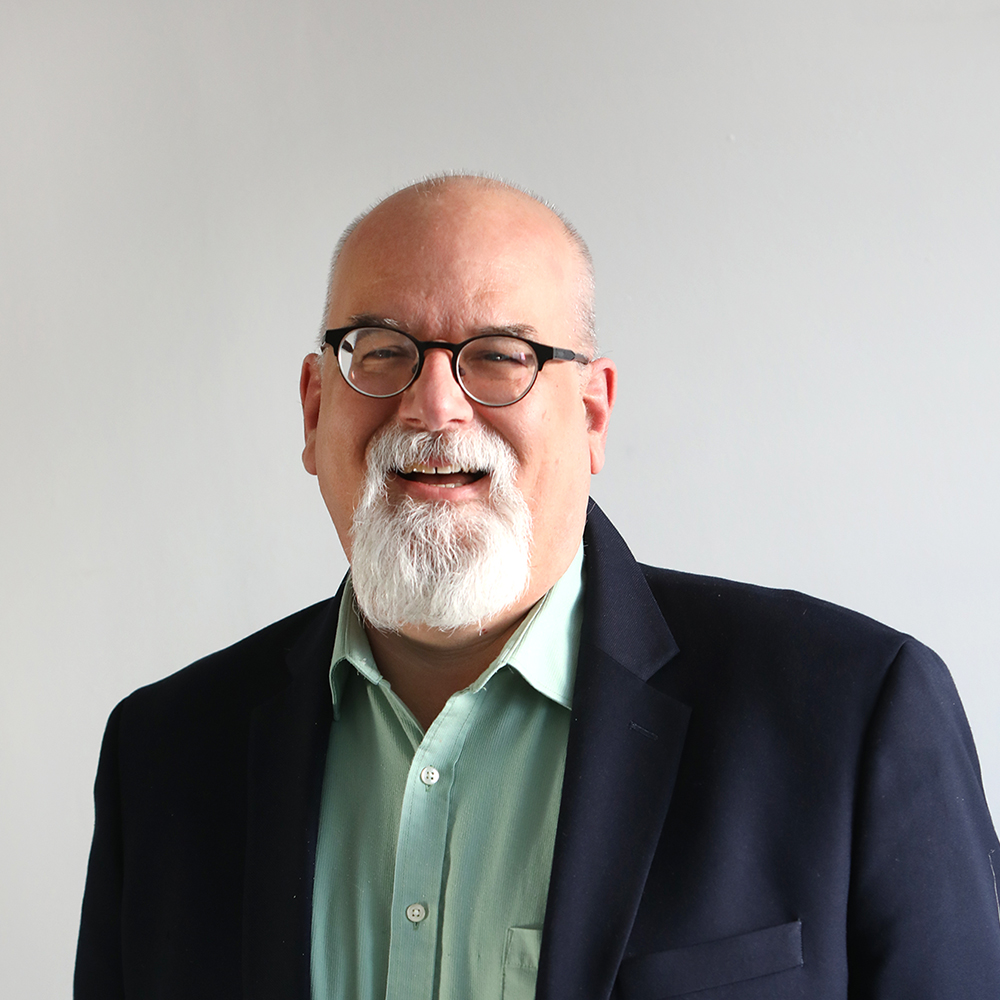(RNS) — As America gears up for another presidential election — with an expected repeat of the 2020 candidate face-off — RNS reporters anticipate plenty of political coverage in their future. But 2024 also promises opportunities for expanded Hindu American coverage, deeper dives into the future of faith in the growing post-religious population, and continued examination of the COVID fallout for congregations large and small.
And, 2023’s final quarter brought with it a vicious war in the Holy Land that will undoubtedly continue to be a main point of coverage for RNS in 2024.
From papal reforms to psychedelics, here are the big religion stories RNS reporters expect to cover in 2024.
Fiona Andre

Fiona Andre. (Courtesy photo)
In 2024, I plan to write more about Muslim voters’ mobilization in the presidential election. As many have announced they won’t support President Biden in response to his handling of the Israel-Hamas war, I’m eager to find out how this will play out in the elections.
I also hope to write more stories about what faith and spirituality look like for Gen Z. Many studies have shown how Gen Z’s ties to religion have changed. I’m curious to know what young people put their faith in these days.
And as I did in 2023, I expect to continue writing about New York’s rich and diverse religious life.
Adelle M. Banks

Adelle Banks. (RNS photo/Kit Doyle)
In any election year faith groups play a role in urging people to get to the polls. But for 2024, organizations involved in voter mobilization among people of color are making plans to start their efforts early in the year. I hope to look into their initiatives, see what’s different in this election season and report on the effects of their work.
At their 2023 annual meeting, Southern Baptists affirmed decisions to expel two Southern Baptist churches — including one founded by author Rick Warren — that employed women as pastors. In 2024, the Southern Baptist Convention is expected to hold the second of two votes that could codify a constitutional amendment stating only men can be pastors. I hope to report on what this might mean for Baptist women in ministry, Black Baptist congregations aligned with the SBC as well as other denominations that have women pastors on staff, and the nation’s largest Protestant denomination in general.
I also remain interested in the long-term fallout of the COVID-19 pandemic and the ways it continues to affect how congregations worship and provide community service.
Claire Giangravè

Claire Giangravè. (RNS photo/Kit Doyle)
Pope Francis is pressing the accelerator on his project to reform the church, cementing his legacy and laying the groundwork for his successor. With a college of cardinals stacked in his favor and his conservative enemies out the door, the 87-year-old pontiff is more secure in his position now than he has ever been. With this newfound confidence, Francis might greenlight unexpected reforms or doctrinal shifts, in line with his recent approval of same-sex blessings in the church.
We can likely expect the pope to continue this pivot toward progressive reforms, completing his vision for a pastoral and welcoming church. A key aspect will be the second half of the summit of bishops and lay people at the Vatican, the Synod on Synodality, scheduled for next fall. The event seeks to address some of the hot-button issues challenging the church, including the married priesthood and female ordination. Its lively discussions and proposals have already begun to change the Catholic institution.
Kathryn Post

Kathryn Post. (RNS photo/Kit Doyle)
As spiritual “nones” continue to flee traditional forms of institutional religion, many crave the belonging and rituals once provided by faith groups. Now, new forms of communities are filling these gaps, from “spiritual collectives” that offer church without doctrine to psychedelic communities where psilocybin and ayahuasca are celebrated as sources of healing. I’ll continue tracking the surprising places nones are finding spiritual fulfillment, from Burning Man to other experimental groups.
Religious trauma is one of the reasons nones often cite when asked why they’ve left religion. But scholarship on the topic is only just starting to gain traction. I’ll continue to watch as this field unfolds and will pay attention to other related fields, like child liberation theology, that are emerging.
While many are opting out of religion, some LGBTQ students are continuing to advocate for their right to form student groups, be in openly queer relationships and hold leadership positions at religious colleges and universities. I expect that religious schools will continue wrestling with how to balance their traditional faith commitments with their desire to be inclusive — and their need to attract students in a competitive market. And I also anticipate that student activism around LGBTQ inclusion won’t die down any time soon.
Jack Jenkins

Jack Jenkins. (RNS photo/Kit Doyle)
Looking ahead to next year, the biggest story in the religion and politics world is pretty easy to spot: the 2024 election, which promises to be animated by a number of faith-related topics. What role will abortion play, especially in the wake of multiple state-level defeats for abortion bans across the country — in some instances, bolstered by religious voters who support abortion rights? Will Christian nationalism animate the Republican primary season as it did in 2020, bolstering former-President Donald Trump’s longstanding support among white evangelicals, or will internal fractures winnow his goodwill among the conservative faithful? Will widespread disapproval of President Joe Biden’s policies regarding the Israel-Hamas war among Muslim Americans, Black Protestants and young religiously unaffiliated voters cost him crucial swing states such as Michigan or Georgia? Will Hispanic evangelicals once again emerge as a critical swing electorate, courted by campaigns on both sides of the aisle?
Meanwhile, U.S. Catholics are also likely to play a role (Biden is Catholic himself, after all), but the faith tradition will also have to grapple with its own internal politics — namely, an ever-widening divide between the Vatican and the U.S. Conference of Catholic Bishops.
Richa Karmarkar

Richa Karmarkar. (Courtesy photo)
Hindus are making inroads into American politics. In the past year, a bill that proposed the banning of caste discrimination in California made headlines for the disunity it revealed among the American Hindu population. And newcomers in the political sphere have made their Hindu faith public, from Vivek Ramaswamy in the presidential race to Republican Niraj Antani and Democrat Bhavini Patel for Congress.
Next election season, Hindu Americans will certainly be a group to watch. I am eager to see the trajectory of the religious group’s voting patterns, especially as some analysts predict a greater transition to Republicanism from the Democrat-majority population.
And as the Hindu population grows, so too will its institutions. In 2023, new temples were erected all over the nation, like the BAPS Akshardham in New Jersey, the largest Hindu temple in North America. And new initiatives like the Texas Hindu Campsite have emerged to ensure Hindu American youth are living out their faith’s values. I look forward to discovering what new developments are on the horizon for future generations of American Hindus.
Next year, I’ll tackle the hot-button debates within the community, from dissatisfaction with the term “South Asian,” to the appropriation of Hindu spirituality, to discussions of diplomacy between India and the United States. And I will continue to cover stories that exemplify the diversity of the American Hindu experience, from LGBTQ Hindus to Hindus living in rural areas of the country.
Lastly, I hope to include more Buddhist, Sikh and Jain voices in 2024. These are under-reported faiths that hold a special allyship with many Hindu devotees and will certainly belong in my future coverage.
Yonat Shimron

Yonat Shimron. (RNS photo/Kit Doyle)
The Oct. 7 attack on Israel by Hamas, and Israel’s ferocious retaliation in the Gaza Strip, has taken up the bulk of my reporting this fall, and I expect that to continue throughout 2024. The story has many angles, among them growing antisemitism in the U.S. But one that interests me in particular is the evolving relationship between U.S. Jews and Israel, especially the generational divide between younger U.S. Jews who are far more critical of Israel and of Zionism, and older generations, including mainstream Jewish institutions and philanthropies, whose support for Israel has, so far, been unflinching. U.S.-Israel relations may also play a role in the 2024 presidential elections, and I will be keeping tabs on that.
The schism in the United Methodist Church will be another theme of my 2024 coverage. I expect to cover the denomination’s General Assembly in Charlotte this April and will be watching how the much-shrunken Protestant body deals with LGBTQ inclusion. I will also be exploring why as much as 25% of United Methodist churches chose to depart, the degree to which political polarization played a role and what lessons might be gleaned from this schism for U.S. denominational life more generally.
As in past years, I will be tracking U.S. religious responses to legislation on immigration and abortion.
Bob Smietana

Bob Smietana. (RNS photo/Kit Doyle)
Next year will mark year five of the current sex abuse crisis in the Southern Baptist Convention, which had been simmering for years behind the scenes but exploded on the national stage after an investigation by the Houston Chronicle and San Antonio-Express News discovered hundreds of cases of abuse in the nation’s largest Protestant denomination. That investigation forced SBC leaders to take action on a national scale they had avoided for years. Despite promised reforms, little has changed. A proposed database of abusive pastors remains empty of names, there is no permanent funding for reforms, and there seems to be little momentum to move forward. I’ll be watching to see if these reforms endure or fade in the next year.
Another big story to watch will be the continued decline of local congregations — and following how those congregations respond to the changing social landscape around them. Which congregations will close and which will find ways to reinvent themselves?
Two other stories I hope to cover in the next year: One would be how congregations and faith groups are responding to the migrant crisis and the second would be about congregations and fossil fuels. There has been a great deal of preaching and writing about the need to address climate change, but fossil fuels still remain tied to faith groups.





